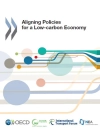Giinter S. Heiduk* and Kar-yiu Wong** * Institute of International and Regional Economic Relations, University of Du- burg-Essen, Campus Duisburg, Germany ** Department of Economics, University of Washington, Seattle, USA The rapid growth of world trade has become one of the most phenomenal features of the international order after the World War. While different countries were – periencing various growth rates of their economies, most of them found out that foreign trade grew much faster than their economies. As a matter of fact, for most economies, foreign trade has been determined to be one of the biggest and the most consistent contributors to economic growth. Nowadays world trade is a very complicated phenomenon because it is not just an economic but also a social, political, environmental, labour, and legal matter. Economists care about world trade because economies are getting more and more open and world trade is related to the properties of open economies. Government planners care about world trade because it is related to many issues that the economies are facing: Resource allocation, income distribution, employment, p- duction, consumption, government revenue, economic growth, and economic w- fare. A right trade policy will enhance the economic welfare and growth of the economy in a more harmonious and equitable way. A wrong policy, however, could spell disaster.
Spis treści
Trade Theory.- Non-Drastic Technology Transfer in an International Oligopoly.- Comment.- Income Redistribution, Trade Prices, and International Capital in Simulated Trade Models.- Comment.- On Two Elementary Propositions on Customs Unions.- Comment.- Trade with Labor Market Distortions and Heterogeneous Labor: Why Trade Can Hurt.- Comment.- The Impact of Intra-Industry Trade on the Environment.- Comment.- International Business Cycle Transmission in a Dynamic Multi-Sectoral Heckscher-Ohlin Model.- Comment.- Trade Policy.- Political Support or Contributions: An Empirical Investigation of US Trade Policy.- Comment.- Minimum Quality Standard and International Rivalry in Quality and Price.- Comment.- Reforms of Quantitative Import Restrictions and Fair Wage Unemployment.- Comment.- WTO.- Trade Games: Modelling WTO’s Role in Trade Disputes.- Comment.- Modelling the Impact of China’s WTO Membership on Its Investment and Growth: A New Flexible Keynesian Approach.- Appendix: Performance of the 2SHI Estimator Under the Generalised Pitman Nearness Criterion.- Comment.- WTO Dispute Settlement in Action: An Economic Analysis of Four EU-US Mini Trade Wars.- Comment.












